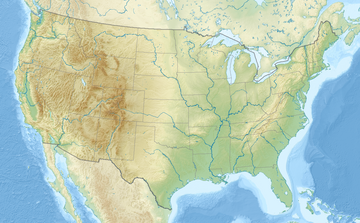| Regular season | |
|---|---|
| Duration | September 12, 1999 – January 3, 2000 |
| Playoffs | |
| Start date | January 8, 2000 |
| AFC Champions | Tennessee Titans |
| NFC Champions | St. Louis Rams |
| Super Bowl XXXIV | |
| Date | January 30, 2000 |
| Site | Georgia Dome, Atlanta, Georgia |
| Champions | St. Louis Rams |
| Pro Bowl | |
| Date | February 6, 2000 |
| Site | Aloha Stadium |

The 1999 NFL season was the 80th regular season of the National Football League (NFL). The Cleveland Browns returned to the field for the first time since the 1995 season, while the Tennessee Oilers changed their name to "Tennessee Titans", with the league retiring the name "Oilers".
The return of the Browns increased the number of teams to 31, the first time the league had played with an odd number of teams since 1966. As per the league's agreement with the City of Cleveland, the Browns were placed in the AFC Central, increasing that division to six teams. This also required the NFL to give at least one team a bye each week; previously, barring extreme circumstances, a club never received a bye during the first two weeks or last seven weeks of the season. Under the new system, for ten weeks of the season (Week #1, Week #2 and Week #10 to Week #17), one team received a bye, and for seven weeks of the season (Week #3 to Week #9), three teams received a bye. This format would continue until the Houston Texans joined the NFL in 2002, returning the league to an even number of teams.
The start of the 1999 NFL season was pushed back one week and started the weekend after Labor Day, a change from the previous seasons: due to the Y2K concerns, the NFL did not want to hold the opening round of the playoffs on Saturday, January 1, 2000, and did not want teams traveling on that day. This was also done to avoid competing against college football's New Years Day bowl games.
Week 17 games were held on January 2, 2000, and the opening round of the playoffs would be scheduled for January 8 and 9, with the bye week before the Super Bowl removed to accommodate the one-week adjustment. The start of the season after Labor Day would become a regular fixture for future seasons, beginning in 2001.
The final spot in the NFC playoffs came down to the final day of the regular season. The Green Bay Packers and Carolina Panthers were both at 7–8, tied for the last spot in the playoffs with the Dallas Cowboys and tied in other tiebreakers. The Packers–Panthers tie would be broken by best net point differential in conference games. With both the Packers and Panthers playing at 1:00 p.m. Eastern on January 2, the two teams tried to outscore the other. The Packers beat the Arizona Cardinals 49–24, and the Panthers beat the New Orleans Saints 45–13, with the result that the Packers finished ahead of the Panthers by 11 points. Nevertheless, Dallas defeated the New York Giants later that night to claim the final playoff spot.
The St. Louis Rams, who had had losing records for each of the past nine seasons dating back to their first tenure in Los Angeles (and had finished in last place in their division the previous season), surprised the entire league by making a Super Bowl run, as seven point favorites, by defeating the Tennessee Titans 23–16 in Super Bowl XXXIV at the Georgia Dome.
